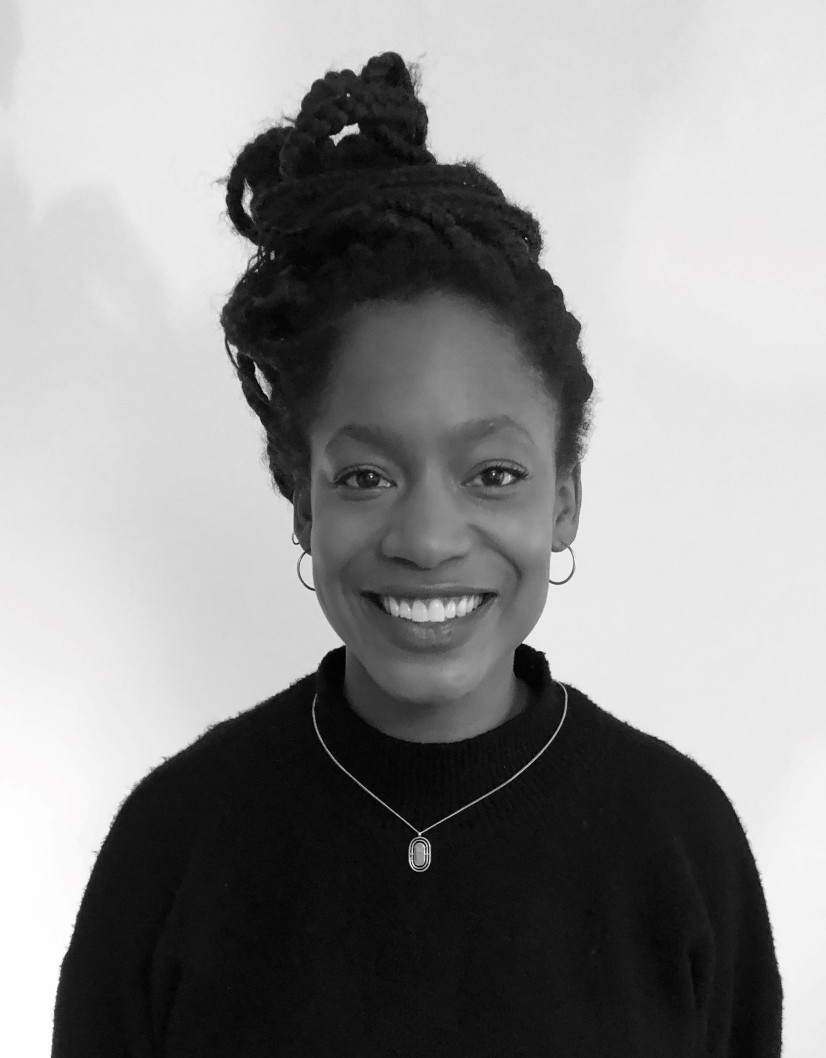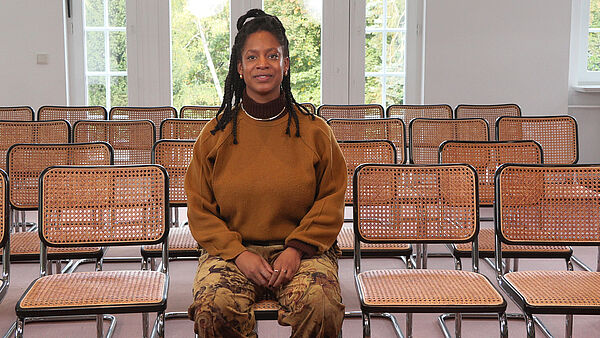
Yolanda Ohene, PhD
Medical Imaging
Universität Manchester
from September 2024 to February 2025
Born in 1991 in Sheffield, United Kingdom
MSci in Physics from Imperial College London, Master 2 in Plasma Physics from Université Pierre et Marie Curie – UPMC, PhD in Medical Imaging from University College London
Fellowship
College for Life Sciences
Arbeitsvorhaben
How Can Medical Imaging Research Better Serve Historically Marginalised Groups?
Health disparities still exist in historically marginalised communities in Western countries for many reasons including socioeconomic factors, scientific racism, poorer health literacy, and lack of inclusion by researchers. Most people will have some type of medical imaging in their lifetime, but many people, in particular those from historically marginalised groups, do not feel that they could have an impact on why or how these technologies advance.My research focusses on developing advanced magnetic resonance imaging techniques to explore the relationship between novel imaging metrics and cognitive decline. It centres on devising non-invasive techniques that are able to probe the blood-brain barrier, a highly regulated physical and biochemical barrier that protects the brain from circulating toxic molecules. Dysfunction of this barrier is an early process occurring in certain dementias and can be detected using these techniques.
Black people are at higher risk of getting some form of dementia, but this demographic is often underrepresented in research studies. One of the risk factors is an increased prevalence of hypertension within this community. Stress is a factor that can cause hypertension through the upregulation of the steroid hormone cortisol. However, the influence of hormones on brain physiology has yet to be well characterised using advanced imaging techniques.
During this fellowship, I will explore how the fluctuation of certain hormones may impact our brain function measurements and if this could be detected and delineated by advanced neuroimaging techniques. Additionally, I plan to develop a reflexive research practice that can draw on ideas used in science and technology studies to actively engage people from the Black community in brain health research. The findings should kindle innovation in both designing and advancing medical imaging studies. Widening the channels connecting patient and public involvement in basic science with underrepresented demographics would be a step towards addressing health inequalities.
Recommended Reading
Ohene, Yolanda, Ian F. Harrison, Payam Nahavandi, Ozama Ismail, Eleanor V. Bird, Ole P. Ottersen, Erlend A. Nagelhus, David L. Thomas, Mark F. Lythgoe, and Jack A. Wells (2019). “Non-invasive MRI of Brain Clearance Pathways Using Multiple Echo Time Arterial Spin Labelling: An Aquaporin-4 Study.” NeuroImage 188: 515–523. https://doi.org/10.1016/j.neuroimage.2018.12.026.
Wade, Jessica, Isabel M. Rabey, Amy Smith, Sophie A. Martin, Matthew Okenyi, Yolanda Ohene, and Mark D. Richards (2022). “Lessons from a UK Research School for Black Physicists and Engineers.” Nature Reviews Materials 7: 927–928. https://doi.org/10.1038/s41578-022-00500-6.
Ohene, Yolanda, William J. Harris, Elizabeth Powell, Nina W. Wycech, Kathe-rine F. Smethers, Samo Lasič, Kieron South, et al. (2023). “Filter Exchange Imaging with Crusher Gradient Modelling Detects Increased Blood–Brain Barrier Water Permeability in Response to Mild Lung Infection.” Fluids and Barriers of the CNS 20: 25. https://doi.org/10.1186/s12987-023-00422-7.
Kolloquium, 03.12.2024
Breaking Barriers: Imagining Improved Inclusion in MRI and Dementia Research
According to the World Health Organization, dementia is one of the major causes of disability and dependency among older people worldwide. Perhaps the biggest problems with understanding and treating the different forms of dementia, is that changes in brain start to occur some 10-20 years before the clinical symptoms, such as memory loss, present. My work has been focused on developing new magnetic resonance imaging (MRI) techniques that may be able to probe physiological changes to the blood flow and alterations to the blood-brain barrier that occur early in the disease, and crucially, may be associated with cognitive decline.
During my time working in the dementia space in the UK, it has become increasingly clear that while Black adults have higher rates of dementia than the UK average, we are often (if not always) underrepresented in neuroimaging studies. Here, at the Wissenschaftskolleg zu Berlin, I have been imagining ways to try to improve inclusion in MRI and dementia research. In my colloquium, I will share the latest innovations in MRI research and invite discussions about how to expand inclusion in research, for more equitable health outcomes for all.
